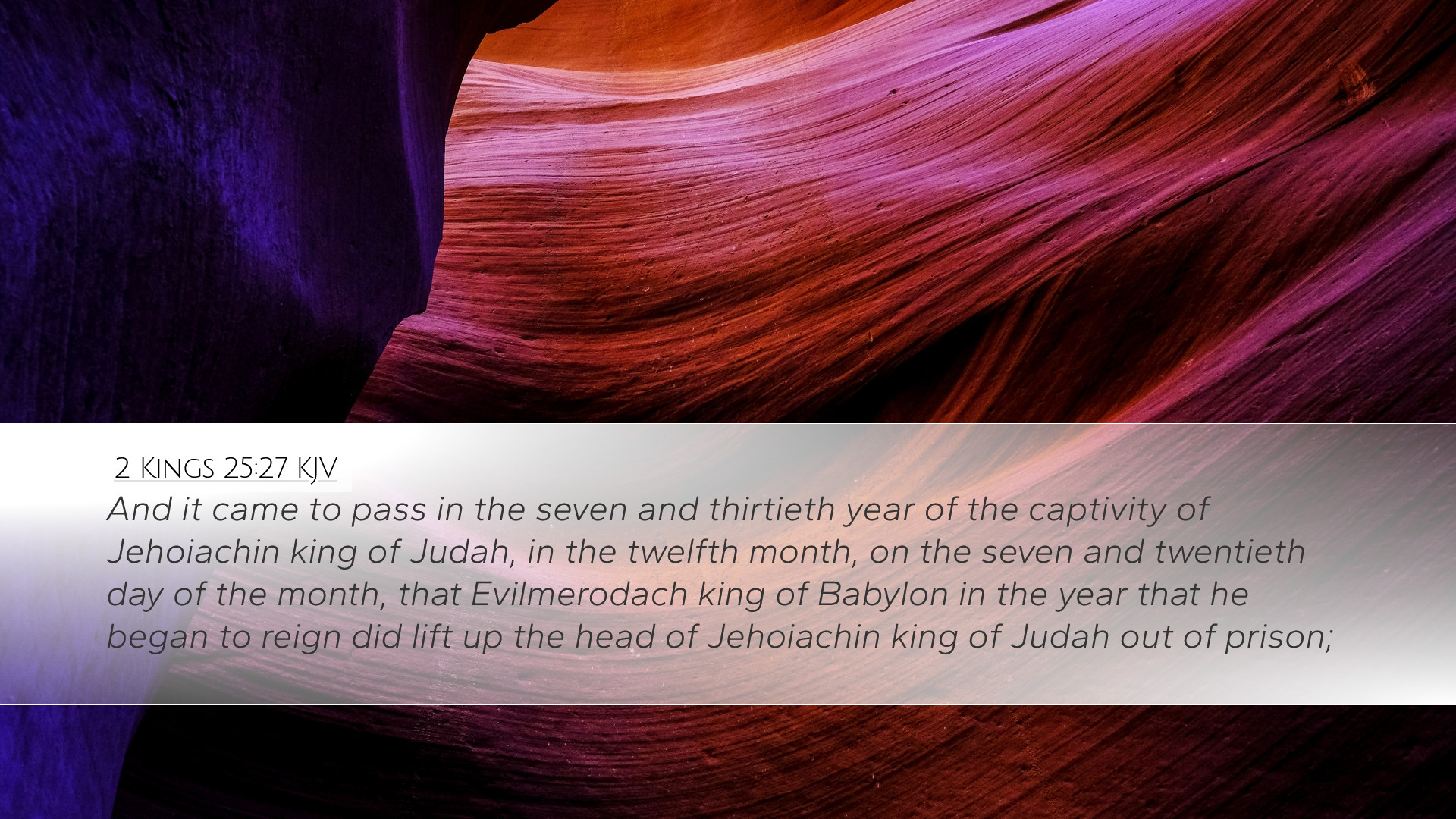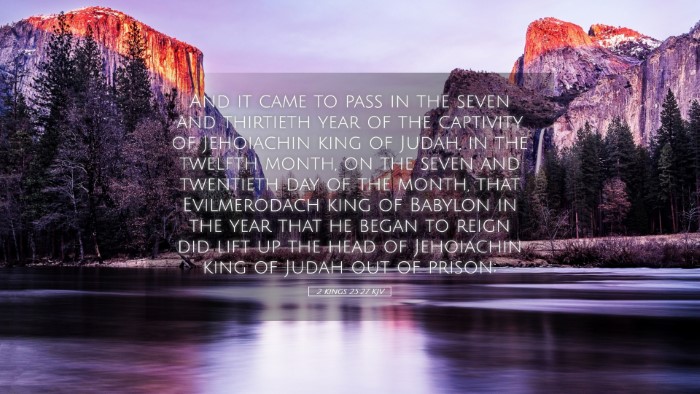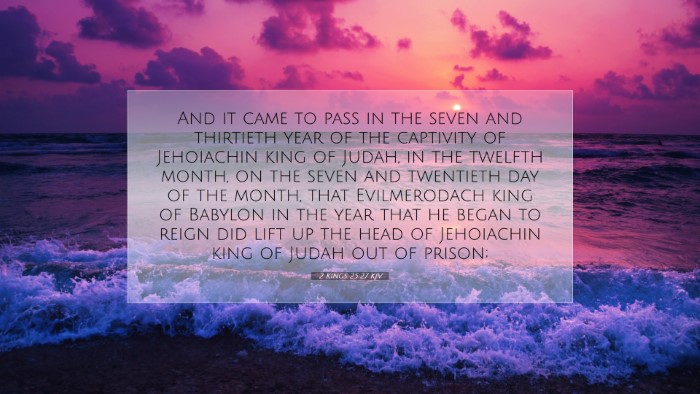Old Testament
Genesis Exodus Leviticus Numbers Deuteronomy Joshua Judges Ruth 1 Samuel 2 Samuel 1 Kings 2 Kings 1 Chronicles 2 Chronicles Ezra Nehemiah Esther Job Psalms Proverbs Ecclesiastes Song of Solomon Isaiah Jeremiah Lamentations Ezekiel Daniel Hosea Joel Amos Obadiah Jonah Micah Nahum Habakkuk Zephaniah Haggai Zechariah MalachiVerse
2 Kings 25:1 2 Kings 25:2 2 Kings 25:3 2 Kings 25:4 2 Kings 25:5 2 Kings 25:6 2 Kings 25:7 2 Kings 25:8 2 Kings 25:9 2 Kings 25:10 2 Kings 25:11 2 Kings 25:12 2 Kings 25:13 2 Kings 25:14 2 Kings 25:15 2 Kings 25:16 2 Kings 25:17 2 Kings 25:18 2 Kings 25:19 2 Kings 25:20 2 Kings 25:21 2 Kings 25:22 2 Kings 25:23 2 Kings 25:24 2 Kings 25:25 2 Kings 25:26 2 Kings 25:27 2 Kings 25:28 2 Kings 25:29 2 Kings 25:30

